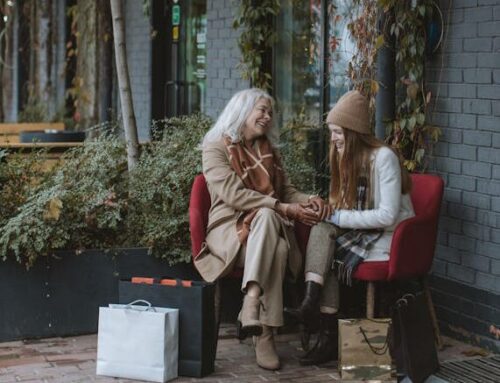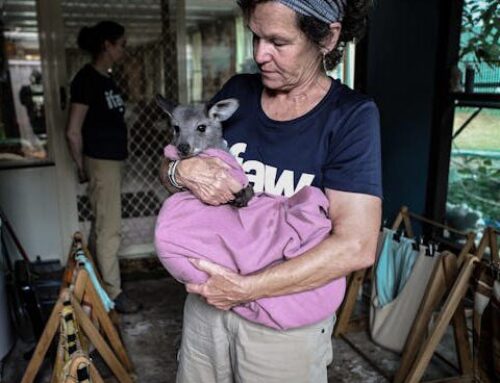It’s known as “the most wonderful time of the year,” but for many seniors, the holiday season brings sadness and depression. Seniors can experience this as Seasonal Affective Disorder (SAD) for physical reasons, such as shorter days, colder weather and physical impairments. Emotional reasons like underlying depression, loneliness and missing deceased loved ones also can trigger seasonal depression. Yale Medicine psychiatrists are reporting that SAD, also known as “winter blues” or “holiday blues” is hitting harder this year with the lengthy pandemic derailing social activities and traditions and sparking uncertainty.
Recognizing Holiday Blues in Seniors
Seasonal Affective Disorder is considered by the Diagnostic and Statistical Manual of Mental Disorders as a “specifier for a recurrent major depressive disorder … that occurs only during a specific time of year and fully remits thereafter.” Even those with normal mental health can experience this seasonal depression during certain times of the year. It is now a widely recognized disorder among experts, and is thought to affect as many as 9 percent of adults in some areas of the country.
“The holidays are a time of tradition and the gathering of family and friends for many people,” said Mary Stehle, LICSW. “For some seniors, this can be a time that reminds them of losses … the loss of loved ones, the loss of a home, the loss of good health.”
Dealing with the new routines and restrictions prompted by Covid-19 has been particularly challenging for seniors aged 65 and older, who are more at risk for moderate to severe complications from the virus. “They are also at high risk for depression resulting from the loss of the activities that give their lives structure and meaning,” said Michelle Starnes, MSW, LCSW, manager of the Life Bridge Senior Program at Parkview Wabash Hospital.
“Working/volunteering, going to church, singing in a choir, attending community events and festivals, traveling, gathering with friends and family members – these activities have become rare to non-existent for some seniors as they’ve sheltered at home from the virus,” Starnes said. “And if they live alone, the effect is to isolate them from the people and circumstances that bring them joy and comfort. They have lost crucial elements of human connection, the ability to hug someone or hold their hand or even have a face-to-face conversation. Even seniors who use technology to talk with friends and family report a sense of disconnectedness.”
Signs of Depression and Holiday Blues
The following are some warning signs that a senior may be suffering from symptoms of depression or SAD:
* Persistent sadness
* Trouble falling asleep or sleeping too much
* Decreased socialization
* Loss of interest in usual activities
* Excessive worrying
* Irritability
* Feeling worthless, helpless or hopeless
* Changes in appetite
* Crying spells
* Trouble focusing, remembering or making decisions
How to Beat the Holiday Blues
Admitting to Feelings of Sadness
First of all, it will be helpful for seniors to admit that they are having a hard time, and may need an ear to listen to them. Encourage your loved one to tell you how they are feeling. “Acknowledging that might allow them to feel okay about sharing some of the thoughts on their mind, which could make them feel better,” social worker Stehle said.
A few simple things seniors can do to counteract the holiday blues are getting enough sleep, taking walks, pursuing their favorite hobbies, and spending time talking on the phone with supportive people. It’s suggested that SAD sufferers avoid binge eating or drinking alcohol if feeling down, set reasonable expectations and keep within a budget.
Staying Busy and Physical Activity
Staying busy and active will also help combat SAD, but of course maintaining Covid-19 safety protocols will make this challenging. Depending on their elderly loved one’s living situation, an adult daughter or son may fall back on socially safe activities from early in the pandemic. These can include the drop-off a favorite meal or special treat, a drive-by tribute the senior can view from a window or front porch or a video chat app to enjoy “face time” and share holiday memories and play games.
Talking About Loved Ones
Many seniors grieve for a lost spouse during the holiday season. Encourage them to share stories, photos, and memories, rather than dwell on their absence. Suppressing any memories and thoughts of them will often worsen any depression. “Take the time to listen to your loved one,” said Stehle. “They may need to reminisce about their childhood or past holiday traditions.”
Visiting and Get-Togethers
Loneliness and isolation can be huge factors in causing holiday depression in seniors. If your loved one lives alone, or in an assisted living community, be sure they can somehow connect with family or friends – perhaps via a teleconferencing platform like Zoom where you can virtually gather to cook or share a meal, play games, sing, make crafts or pursue any number of activities. Valentin Bragin, psychiatrist and author of Conquering Depression in the Golden Years, said seniors need to feel connected to others during the holidays. “The key message is not to feel home alone during the holidays,” Bragin said.
Seniors can maintain socially safe distancing and still pursue social connection by taking an online class, perhaps learning to paint, play an instrument, create a photo album, or make jewelry. Staying connected with people can take the form of a virtual lunch date with friends, an online book club or discussion group, or even as a volunteer phone caller for an organization reaching out to seniors who are isolated by Covid-19.
Navigating Post-Holiday Depression and Senior Health
SAD is only temporary; however, depression can easily worsen when untreated. If symptoms last longer than a couple of weeks, it may be time to find help. Depression is not a normal part of aging, and healthcare professionals can recommend treatments like medication, therapy, exercise, and socialization.
Reliable In-Home Care to Enhance Senior Living
At Amada Senior Care, we are dedicated to the well-being of senior living. We understand that the holiday blue may impact our senior clients, so our caregivers are here to help. To learn more about our home care services, contact us today for a free care needs consultation.
Written by Taylor French and updated by Michelle Flores, Amada blog contributors.



